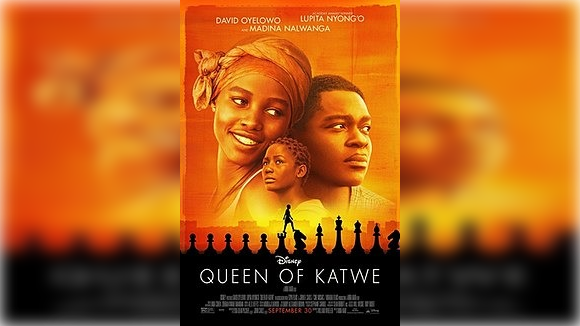Read in : தமிழ்
In the game of chess, even small people can become very big. This dialogue in the film, Queen of Katwe, directed by Mira Nair, probably captures the essence of the movie. It also captures the essence of the allure the game has for chess enthusiasts across the world.
Queen of Katwe tells the story of Phiona Mutesi, born and raised in the largest of slums in Kampala, Uganda, who rose to become a chess grandmaster. Mira Nair tells the story of how chess changed the life of Phiona.
Katwe houses some of the most marginalized people of Uganda. The film starts with a 10-year-old Phiona living with her mother, her brother and another two-year-old brother in Katwe. While the kids mentored by the local priest take to football, a chess club is established for some of the slum children including Phiona’s brother. Phiona follows her brother to the club where she too starts playing chess.
Phiona lost her father to AIDS and grew up seeing only one parent’s face. Queen of Katwe portrays the pain of a girl from an impoverished family aspiring for something bigger
Slowly Phiona takes on other children in her neighbourhood as well as matches with those from other areas. The film discusses her career path that includes a disastrous outing at the Chess Olympiad in 2010 in Russia and her bouncing back.
The film talks about the period between 2007 and 2012 in Phiona’s life. Phiona lost her father to AIDS and grew up seeing only one parent’s face. Queen of Katwe portrays the pain of a girl from an impoverished family aspiring for something bigger.
Mira Nair, who married Mahmood Mamdani, Ugandan of Indian origin, was familiar with the Ugandan milieu. This helped her make Mississippi Masala whose backdrop was the troubled race relations between Indians and black Ugandans.
Mira Nair then made Monsoon Wedding, The Namesake and The Reluctant Fundamentalist before returning to an African theme in Queen of Katwe.
By then an international player, Phiona is shown trudging on the streets of Kampala with an oil can. Life in Uganda wasn’t rosy even for international chess players. The film is, however, not a dreary nor dim view of life in Uganda slums. It has a positive, upbeat flavour too. It talks about the most marginalized overcoming challenges and aspiring.
Also Read:
So why do Tamil film-makers stay away from web series on OTT?
Ranjan, a superstar that never was
Madina Nalwango, who plays Phiona, David Oyelowo who plays coach Katende as well as Phiona’s mother played by Lupita Nyongo were cast after a nationwide talent search in Uganda. Queen of Katwe was released in the US in 2016 and bagged many awards.
The movie presents the game of royals as one that common folk can aspire for. Robert Katende, the coach, introduces the game to the slum children saying it is the game of kings and queens.
The chessboard is the site of a war game. The game’s strategy has to be looked at as a battle strategy. In its essence, chess is based on mental toughness that is as much required as physical power to win wars.
Phiona, who became a symbol of Uganda, buys a house so her mother could live in one she can call her own. Queen of Katwe ends with that scene.
A journalist who saw Phiona losing in Russia wrote a book about her. The screenplay by William Wheeler based on that book is what Queen of Katwe is. The story is not just about Phiona’s triumphs but also about her milieu and the lives of people who are part of that. As the end credits roll, the audience sees the actors and the real life people they portrayed. This too asserts the realism in the film.
Phiona has finished her school and college and is now working to uplift her community. She doesn’t play chess anymore. But the game has proved to be a guide for her entire life.
The idea that every day is a battle that needs to be fought may not sync with the reality of today’s life in many countries. But the grit and hope such an approach brings may be needed all the time. The game of chess can provide that, as per Queen of Katwe.
Read in : தமிழ்











